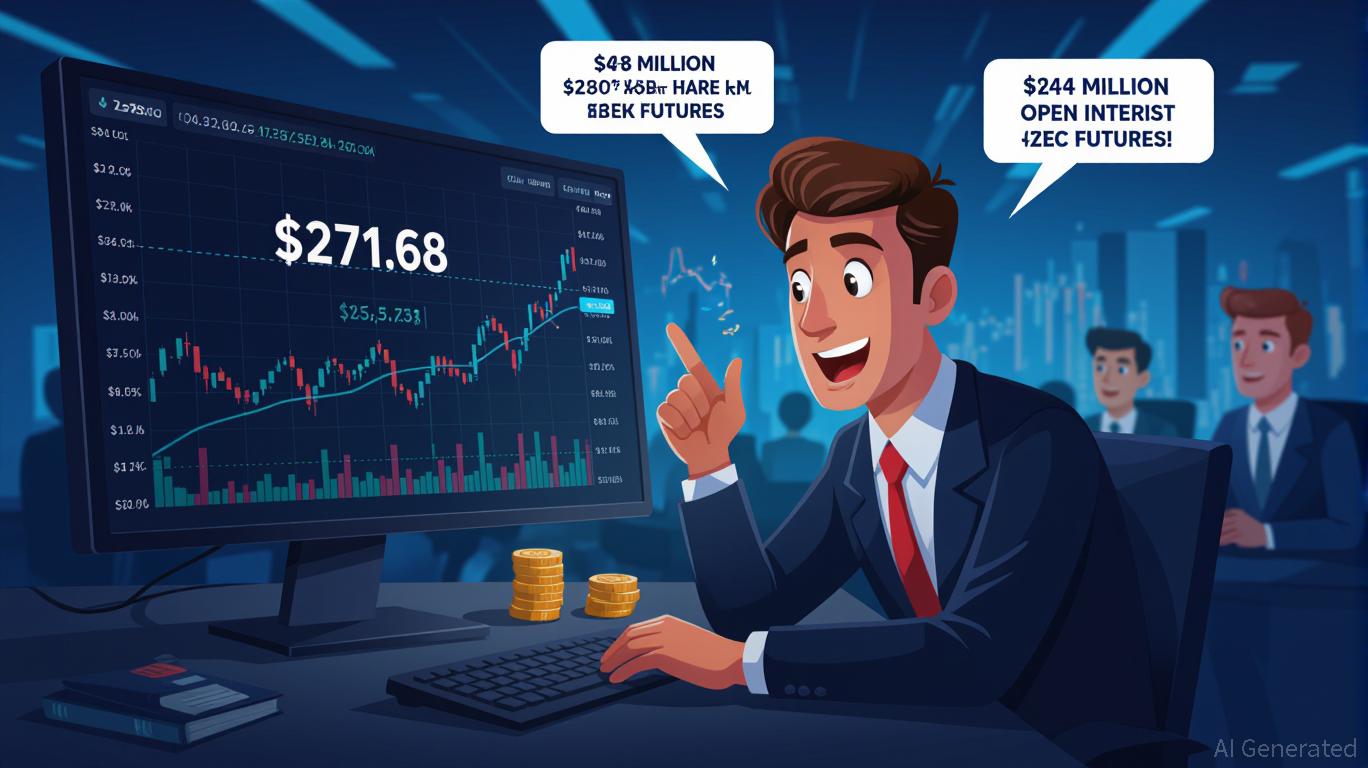DASH Price Drops 7.21% Following Shareholder Sale Disclosures
- DASH fell 7.21% in 24 hours amid a 27.4% 7-day drop, despite a 99.6% annual gain. - A shareholder trust filed to sell 4,575 DASH shares via a 10b5-1 plan, signaling potential ownership shifts. - DoorDash faces intensified grocery delivery competition from Instacart, Walmart , and Venmo's new rewards program. - Technical analysis shows weak mean-reversion potential post-sell-offs, with high outcome dispersion requiring strict risk management.
On November 10, 2025,
A trust associated with Brown Shona L, called the Shona L Living Trust, submitted a Form 144 to the SEC to sell 4,575 shares of DASH. The filing, made on November 10, 2025, states that Morgan Stanley Smith Barney LLC will handle the sale under a pre-set 10b5-1 trading plan. The trust is required to complete the transaction within 90 days of the filing date. Such filings are routine for insiders selling restricted shares and do not necessarily reflect expectations for the company’s long-term performance.
This development comes as DoorDash faces heightened competition in the grocery delivery market, with rivals like Instacart and Walmart expanding their online grocery offerings. In recent quarters,
Despite these challenges, technical analysis indicates that DASH’s recent price swings may offer short-term rebound opportunities for investors. Historical data from January 3, 2022, to November 7, 2025, shows the stock tends to exhibit a slight mean-reversion tendency following sharp declines.
Backtest Hypothesis
The backtest reviewed DASH’s performance after its daily close dropped at least 10% below its previous closing high. Over this timeframe, 682 such drawdown events were recorded. The findings showed that, on average, DASH outperformed a buy-and-hold strategy by about 0.38 percentage points over the following 30 days. The win rate increased from roughly 51% on day one to 63% after 30 days, but the advantage was modest and not statistically significant by standard measures. This implies that, while there is a slight mean-reversion effect, the approach may not be sufficient as a standalone trading strategy once transaction costs and slippage are considered. The wide range of results also highlights the necessity of strong risk controls when trading after significant sell-offs.
Disclaimer: The content of this article solely reflects the author's opinion and does not represent the platform in any capacity. This article is not intended to serve as a reference for making investment decisions.
You may also like
Top 5 Cryptos Soaring as U.S. Government Shutdown Ends
Zcash (ZEC) Rises Sharply: Is This the Dawn of Privacy-Focused Cryptocurrency?
- Zcash (ZEC) surged 425% in 2025, trading at $528.95 as of November 6, driven by whale activity, DeFi integration (e.g., zenZEC), and rising privacy demand. - Regulatory challenges loom, with EU rules banning privacy coins by 2027 and U.S. enforcement actions targeting unlicensed privacy tools, complicating ZEC's compliance. - ZEC's hybrid model (transparent/shielded transactions) and institutional interest (e.g., BitMEX co-founder's portfolio) suggest potential for niche adoption amid regulatory tensions
Zcash Halving and Its Impact on the Market: Deflationary Features of Blockchain and Speculative Behavior of Investors
- Zcash's 2025 halving reduces block rewards by 50%, tightening supply and mirroring Bitcoin's deflationary model. - Historical data shows 500%+ price surges post-halving, with Grayscale's $137M Zcash Trust signaling institutional interest. - Privacy-focused shielded transactions (28% of supply) decouple demand from speculation, enhancing long-term utility. - Speculative FOMO drives ZEC's 1,172% YTD surge, while inverse Bitcoin dynamics attract investors during crypto downturns. - Risks include regulatory

Zcash (ZEC) Price Rally: Essential Insights for Privacy Coin Investors
- Zcash (ZEC) surged 472% in late 2025 to $420, driven by institutional adoption and privacy-focused innovation. - Grayscale invested $137M in ZEC via ZCSH, leveraging its optional transparency model to navigate AML regulations. - U.S. Clarity/Genius Acts provided legal clarity for privacy coins, while Zenrock’s zenZEC bridged privacy and DeFi. - Zcash’s 150% QoQ on-chain growth and institutional endorsements position it as a privacy-first alternative to Bitcoin . - Regulatory risks persist, but Zcash’s hy
